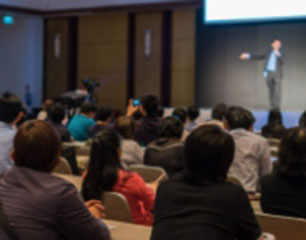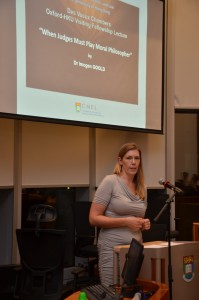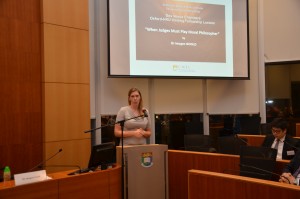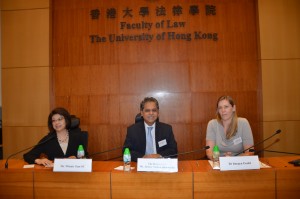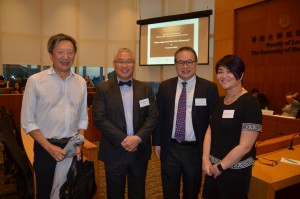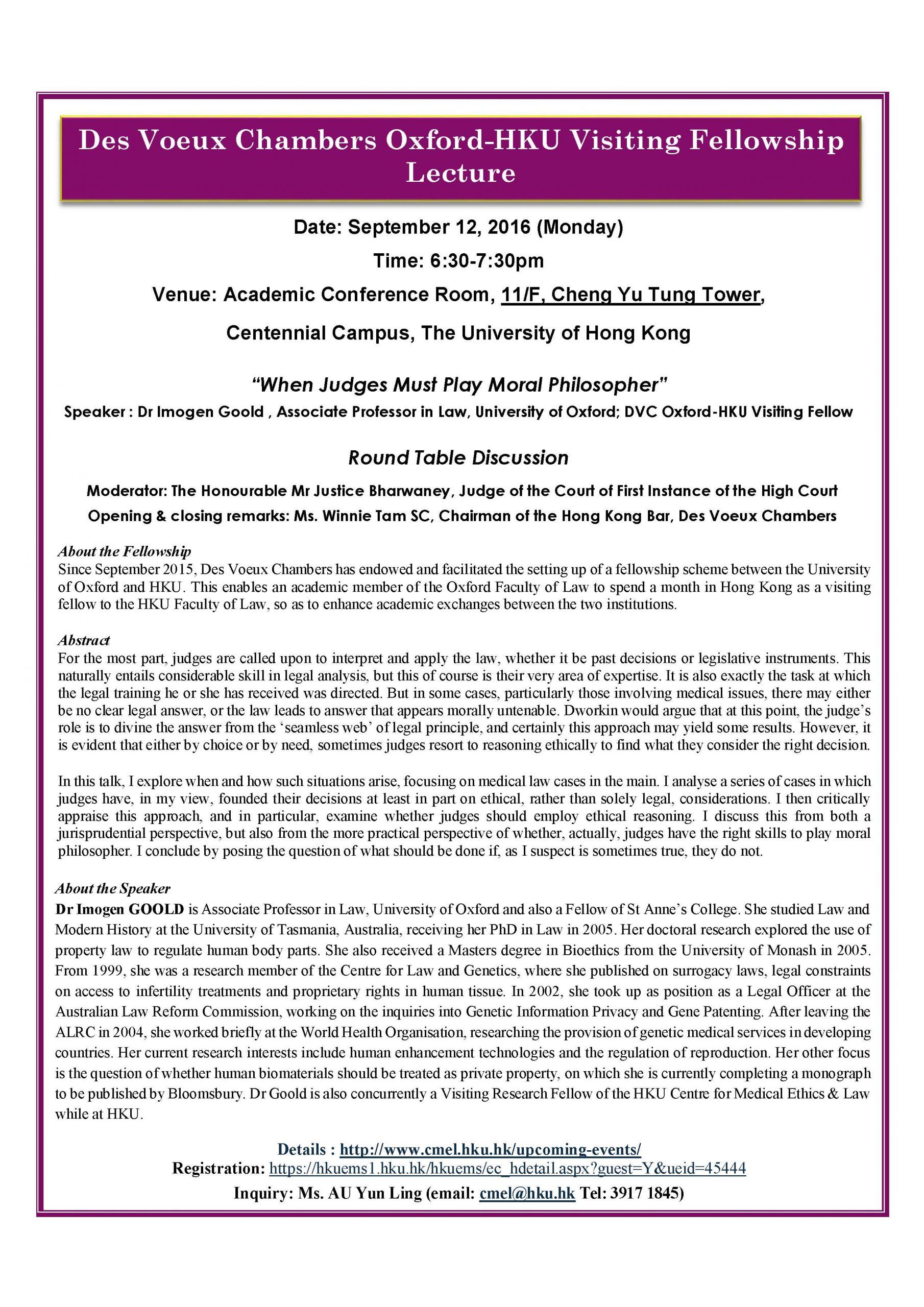Since September 2015, Des Voeux Chambers has endowed and facilitated the setting up of a fellowship scheme between the University of Oxford and HKU. This enables an academic member of the Oxford Faculty of Law to spend a month in Hong Kong as a visiting fellow to the HKU Faculty of Law, so as to enhance academic exchanges between the two institutions.
Abstract:
For the most part, judges are called upon to interpret and apply the law, whether it be past decisions or legislative instruments. This naturally entails considerable skill in legal analysis, but this of course is their very area of expertise. It is also exactly the task at which the legal training he or she has received was directed. But in some cases, particularly those involving medical issues, there may either be no clear legal answer, or the law leads to answer that appears morally untenable. Dworkin would argue that at this point, the judge’s role is to divine the answer from the ‘seamless web’ of legal principle, and certainly this approach may yield some results. However, it is evident that either by choice or by need, sometimes judges resort to reasoning ethically to find what they consider the right decision.
In this talk, I explore when and how such situations arise, focusing on medical law cases in the main. I analyse a series of cases in which judges have, in my view, founded their decisions at least in part on ethical, rather than solely legal, considerations. I then critically appraise this approach, and in particular, examine whether judges should employ ethical reasoning. I discuss this from both a jurisprudential perspective, but also from the more practical perspective of whether, actually, judges have the right skills to play moral philosopher. I conclude by posing the question of what should be done if, as I suspect is sometimes true, they do not.
Speaker(s):
Dr Imogen Goold , Associate Professor in Law, University of Oxford; DVC Oxford-HKU Visiting Fellow
Dr Imogen GOOLD is Associate Professor in Law, University of Oxford and also a Fellow of St Anne’s College. She studied Law and Modern History at the University of Tasmania, Australia, receiving her PhD in Law in 2005. Her doctoral research explored the use of property law to regulate human body parts. She also received a Masters degree in Bioethics from the University of Monash in 2005. From 1999, she was a research member of the Centre for Law and Genetics, where she published on surrogacy laws, legal constraints on access to infertility treatments and proprietary rights in human tissue. In 2002, she took up as position as a Legal Officer at the Australian Law Reform Commission, working on the inquiries into Genetic Information Privacy and Gene Patenting. After leaving the ALRC in 2004, she worked briefly at the World Health Organisation, researching the provision of genetic medical services in developing countries. Her current research interests include human enhancement technologies and the regulation of reproduction. Her other focus is the question of whether human biomaterials should be treated as private property, on which she is currently completing a monograph to be published by Bloomsbury.
Round Table Discussion:
Moderator: The Honourable Mr Justice Bharwaney, Judge of the Court of First Instance of the High Court
Opening & closing remarks: Ms. Winnie Tam SC, Chairman of the Hong Kong Bar, Des Voeux Chambers
Link for video file:
Click Here

